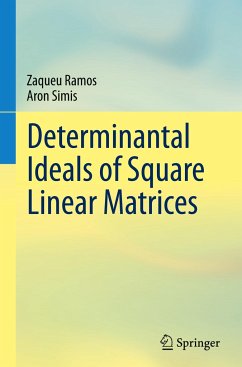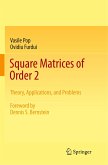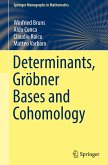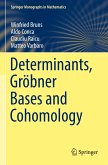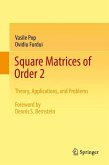This book explores determinantal ideals of square matrices from the perspective of commutative algebra, with a particular emphasis on linear matrices. Its content has been extensively tested in several lectures given on various occasions, typically to audiences composed of commutative algebraists, algebraic geometers, and singularity theorists.
Traditionally, texts on this topic showcase determinantal rings as the main actors, emphasizing their properties as algebras. This book follows a different path, exploring the role of the ideal theory of minors in various situations-highlighting the use of Fitting ideals, for example. Topics include an introduction to the subject, explaining matrices and their ideals of minors, as well as classical and recent bounds for codimension. This is followed by examples of algebraic varieties defined by such ideals. The book also explores properties of matrices that impact their ideals of minors, such as the 1-generic property, explicitly presenting a criterion by Eisenbud. Additionally, the authors address the problem of the degeneration of generic matrices and their ideals of minors, along with applications to the dual varieties of some of the ideals.
Primarily intended for graduate students and scholars in the areas of commutative algebra, algebraic geometry, and singularity theory, the book can also be used in advanced seminars and as a source of aid. It is suitable for beginner graduate students who have completed a first course in commutative algebra.
Traditionally, texts on this topic showcase determinantal rings as the main actors, emphasizing their properties as algebras. This book follows a different path, exploring the role of the ideal theory of minors in various situations-highlighting the use of Fitting ideals, for example. Topics include an introduction to the subject, explaining matrices and their ideals of minors, as well as classical and recent bounds for codimension. This is followed by examples of algebraic varieties defined by such ideals. The book also explores properties of matrices that impact their ideals of minors, such as the 1-generic property, explicitly presenting a criterion by Eisenbud. Additionally, the authors address the problem of the degeneration of generic matrices and their ideals of minors, along with applications to the dual varieties of some of the ideals.
Primarily intended for graduate students and scholars in the areas of commutative algebra, algebraic geometry, and singularity theory, the book can also be used in advanced seminars and as a source of aid. It is suitable for beginner graduate students who have completed a first course in commutative algebra.
This book delves into the algebraic and geometric properties of determinantal ideals of matrices. The matrices considered are typically derived from a generic matrix of variables by replacing some entries with linear forms. These matrices belong to a class referred to as linear sections in the text. The book is organised into three parts with ten chapters and an appendix. Each chapter begins with an abstract and concludes with a list of exercises and bibliography." (Jorge Neves. zbMATH 1553.13001, 2025)

